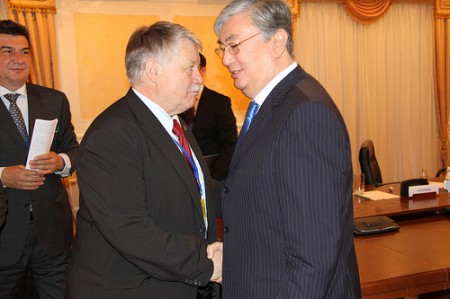
Nigerians finally cast their votes for a new national assembly last Saturday, in the first of three successive elections. It did not start quite as imagined. A week earlier, polling had to be abandoned after election materials failed to arrive in many parts of the country. A bomb blast at an electoral office on the eve of the election killed several people, and polling itself was marred by sporadic violence.
But compared to the 2007 elections, which were characterized by violence, organized vote-rigging and fraud, Nigeria might do pretty well this time. A well respected academic and civil society activist presides over the Independent National Election Commission, and incumbent President Goodluck Jonathan has made repeated commitments to respect the rules of democracy. His main challengers include a former military ruler, who is now taking his chances at the polls. And even the estimated 10 to 15 percent ghost voters do not seem so bad after all. Progress is relative. According to one of Crisis Group’s Senior Analysts, “The polls could mark a turning point for Nigeria”.
The same cannot be said for Kazakhstan. In a sham election earlier this month, President Nursultan Nazarbayev won 95.5% of the votes in a turnout of 89.5%. Nazarbayev’s three challengers all expressed support for his candidacy and, bizarrely, one of them even admitted having voted for him. The way in which the elections took place not only embarrasses Western diplomats, whose praise for the call for elections now seems somewhat premature.
